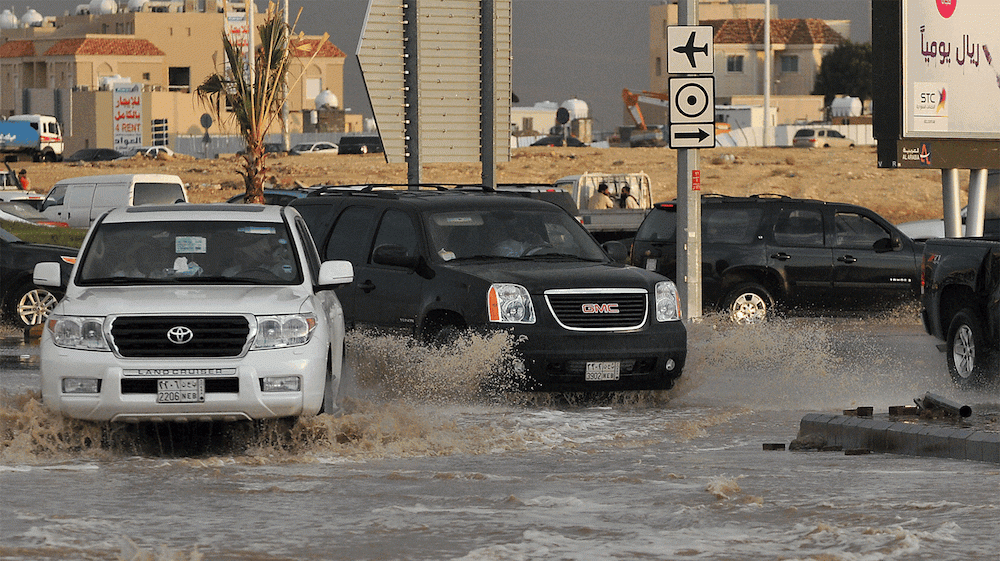Saudi getting smart on flooding?

For the last four years PhD student Mustafa Mousa has been placing nodes (sensors) in various locations in Mecca and Thuwal. He wanted to predict floods.
Acting like an eye for city planners and civil defense, the nodes are able to predict the growth and magnitude of a flood, then alert the relevant people.
Everyone from small tech startups to national government entities are admitting that a ‘smart city’ is one that fulfills the needs of its people, and holistically creates an environment that achieves greater happiness and ease of living.
In the same vein, the development of major cities requires an infrastructure that can change and advance for the good of the people who live within it.

Sadeem, the name given to Mousa’s startup, operates, with his three cofounders out of King Abdullah University of Science and Technology (KAUST). It is now at an advanced stage and they are in talks with people around the kingdom who are keen on smart city services, but they are yet to be commercially employed.

Towards the end of 2014, while testing their sensors in Mecca they were able to detect a flash flood. However, because they were still at the testing phase and not in use commercially, little could be done with the predictive results of what was to come.
Saudi Arabia
Floods typically occur when rain water has accumulated in wadis and in just minutes they can be in a city, and then made worse by poor infrastructure. Since 2009 Jeddah has been rated as one city most prone to flash floods.
In April, Riyadh was submerged in rainwater. Without a 21st century underground drainage system to divert the flow away from streets and homes, workers attempted to clear flooded roadways with construction equipment. Ultimately, 18 people were killed and 915 people were rescued from their vehicles. Similarly, in November 2013 people went missing after rain flooding in the capital.
Efforts being made to sort it out include the 2012 contract awarded to Saudi-based company Saipem. A $350 million contract to construct a stormwater drainage system to alleviate Jeddah’s historic flash flooding problem. The scheduled timeline was 18 months. Residents wonder where the money disappeared to in the midst of consistent flooding.
A recent publication by Deloitte estimates that the total net value of GCC projects in the pre-execution stage (this is for construction) is just over $2 trillion. (Major sectors of infrastructure that are addressed are water, construction, power, oil, chemical, gas, and transportation).
This is where smart city infrastructure could step in. However, the approach is scattered.
There is Saudi Arabia’s Vision 2030, and within that there is the National Transformation Plan 2020. There’s also the King Abdullah Economic City, which is regulated by the Economic Cities Authority (ECA), basically a city to live and work in, and part of that is the ‘industrial valley’.
“There are many strategies by a number of ministries and organizations in the Kingdom, who end-up operating in silos,” says Hashim AlZain, a tech and business development specialist at KAUST, “which needs to be synchronized in order to streamline and consolidate efforts into a collective goal that would benefit the Kingdom as a collective initiative.”
AlZain said this led to limited synergies across organizations in the kingdom and a lot of duplication in efforts.
One example is how efforts towards sustainable living are a mixture of government and private - waste management is under private company control, while infrastructure is left to the government.

And Mousa sees this with the flood control.
“There is the issue of no rules and regulations,” he said. “There are different entities for everything, so you’ll have a water entity but then those who deal with it like civil defense.”
Got smarts?
Dubai has been particularly prolific in its work on making themselves a smart city, perhaps the smartest city of them all - Sheikh Mohammed declared in 2013 that Dubai would be the world’s smartest city by 2017.
During May’s 22nd GCC Smart Government and Smart Cities Conference in Dubai there wasn’t much to report on (low turnout, disjointed talks), however, the age and theme of the conference itself, as well as the extensive awardees list from the GCC, begged the question: where have all the conferences, awards ceremonies, published studies and initiatives brought the region in terms of smart city infrastructure development?

Deloitte’s report may serve as a third-party reference on recent developments in the GCC, but conversations surrounding smart city infrastructure and investment have been going on for over two decades within the region.
So, while there are the initiatives, from both private and public entities, all looking to make Saudi ‘smart’ there is still some way to go before “visions” are realised.
A complaint from Mousa is the lack of awareness still present when it comes to not realising the benefits of prevention over cure - the cost of clear up after a flash flood is expensive - so they have to spend a lot of time making people area of the importance of such a solution as theirs.
“When you consider that there are two or three of these floods a year, this is a more affordable option.”


